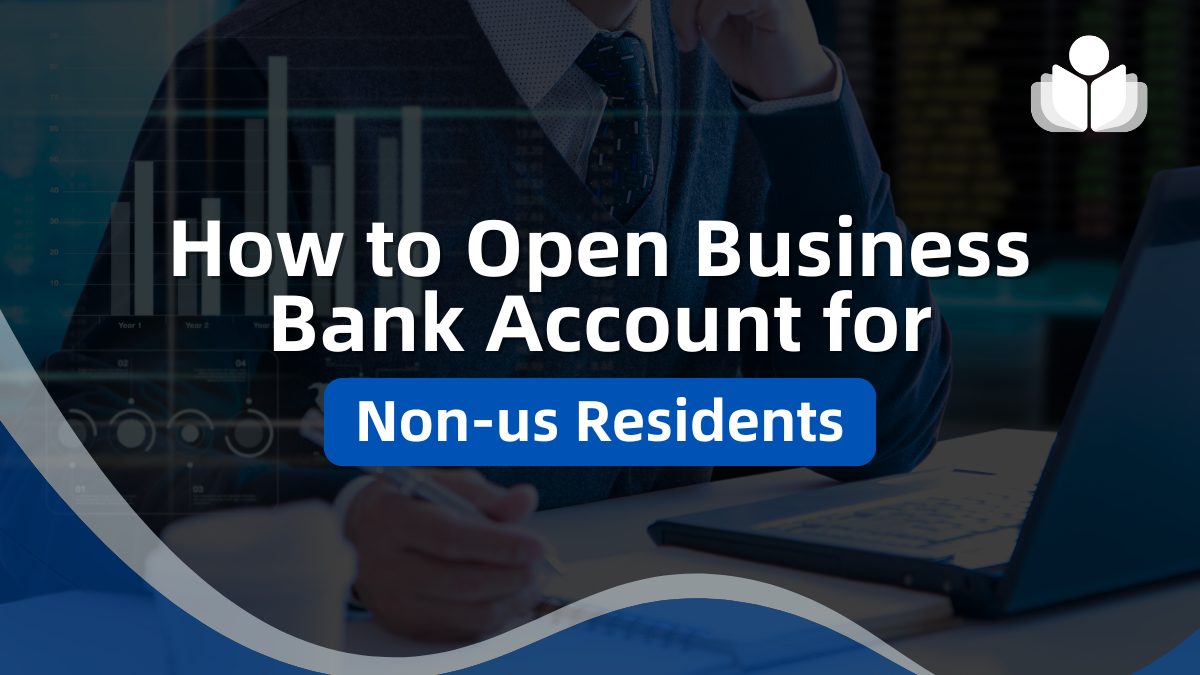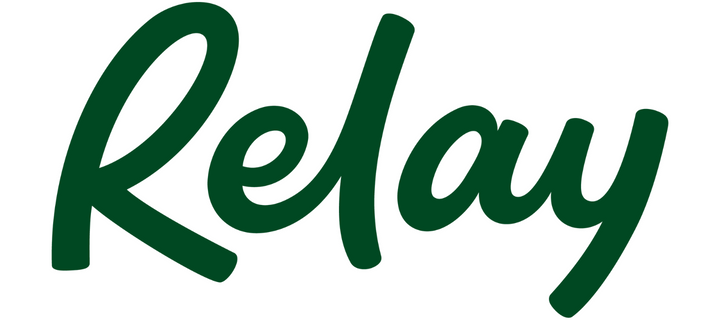A U.S. bank account is essential to conduct business in the United States. A dedicated business bank account is necessary for those running or intending to run a Limited Liability Company (LLC), a personal account won’t suffice.
So, how easy or challenging is it for a non-resident to open a business bank account for an LLC? Keep reading to learn everything you need, including whether you can open an account online and the documents required for the application.
>> Open Bluevine’s US Bank Account >>
What Is a Non-Resident Account?
Individuals, not U.S. residents or citizens, hold a non-resident account. These account holders lack a Social Security Number (SSN) or Individual Taxpayer Identification Number (ITIN) and must undergo extra steps for identity verification.
Non-Resident Account Requirements
Every institution will request the same basic information from your business, but the method of verifying your identity may differ. Here is what you’ll need:
Business Formation Document:
This could be the Articles of Organization or Certificate of Incorporation—names vary by state, but it’s the original document filed with the government to establish your company.
Federal Tax ID Number:
Also known as your EIN, FEIN, Tax ID, or Employer ID, this number is issued by the IRS for tax purposes.
Bylaws or Operating Agreement:
These documents identify the company’s owners, managers, and officers, who can open bank accounts and sign on behalf of the company.
Passport:
A passport is required to verify your identity, as banks do not accept national IDs.
U.S. Business Address (typically listed in the Articles):
Banks usually require a distinct business address and may not accept a registered agent’s address. (Note: We provide this service free to our clients.)
List of Owners with More than 25% Ownership:
Banks need to identify the Ultimate Beneficiary Owners (UBO). If a company is owned by another entity, the individuals behind it must be disclosed, and eventually, a real person must be listed.
These requirements ensure that the LLC or Corporation is in good standing and that its owners and operators are identified. The era of using nominees or shell corporations to obscure ownership is over. Fortunately, banks have adapted and can now open accounts for non-citizens online.
>> Use Bluevine’s US Bank Account >>
Traveling to the US and Opening an LLC Bank Account in Person
You can also open a U.S. bank account for your LLC by traveling to the United States. The account must be opened in the state where your LLC was established.
Wells Fargo is considered the most “foreigner-friendly” bank, as they are accustomed to opening accounts for non-U.S. residents without an SSN or ITIN. However, it’s best to call ahead and confirm their requirements, as some banks may require a physical U.S. street address.
Chase is another option, but remember that Chase typically has higher minimum balance requirements and monthly fees than Wells Fargo.
Call the Bank Ahead of Time
Because each bank has its own policies, it’s crucial to call ahead and speak directly with the branch manager.
Explain that you have a U.S. LLC, are a non-U.S. resident, and do not have an SSN or ITIN. Inquire about the documents needed to open an account and take detailed notes. Also, ask if you can email the documents for review before visiting the branch.
If everything looks good, request an appointment to open the account with the manager. This approach is more effective than walking in unannounced. It’s advisable to stay in the U.S. for at least 1 to 2 weeks to account for any potential delays or additional requirements.
Small Local Banks
You can also consider opening an LLC bank account with a small or local bank. Search online for “business bank account + (city name matching your LLC address).” Remember to call the bank beforehand to confirm their specific requirements.
>> Open Bluevine’s Bank Account >>
Potential Benefits of Opening a Bank Account in the U.S.
Having a local bank account while in the United States offers several advantages, such as:
Receiving Payments Directly
A U.S. bank account allows for direct deposit, meaning your paychecks are automatically deposited into your account without hassle.
Paying Bills
A local bank account simplifies the process of paying bills. You can pay online or by check, avoiding needing money orders or other services that may incur extra fees.
Accessing Debit Cards and ATMs
With a U.S. bank account, you typically receive a debit card linked to a network of ATMs. This card provides easy access to your funds for daily transactions while avoiding fees associated with using a foreign bank account.
Building a Financial History
Having an account at a U.S. Bank or credit union helps establish a financial history with that institution, which can be beneficial if you plan to seek financing from a U.S. financial institution in the future, improving your approval chances.
>> Use Bluevine: Best Bank Account for Foreigners >>
Best U.S Banks for Non-Residents

Bluevine
Bluevine is a great choice for non-resident entrepreneurs and small business owners looking for accessible and dependable financial services in the U.S.
It provides a business-centric banking experience with high-yield checking accounts, no monthly fees, and access to business lines of credit, making it ideal for those looking to start or expand their business operations in the U.S.
Bluevine makes the account-opening process easy, requiring only minimal documentation like a passport and proof of address. With its fully online platform, Bluevine offers remote access and a simple interface, making it easy for non-residents to manage their finances.
Thanks to its low fees, competitive interest rates, and excellent customer support, Bluevine is a top choice for non-residents seeking to optimize their financial resources while managing U.S.-based businesses.

Lili
Lili is a great banking option for non-resident freelancers, gig workers, and independent contractors looking for a simple and affordable way to manage their finances in the U.S. It offers features tailored specifically for freelancers, such as automatic expense categorization, tax-saving tools, and integrated invoicing.
The account opening process is simple, requiring just a passport and proof of address, and its fully digital platform makes managing finances easy from anywhere.
With no hidden fees and helpful tax planning tools, Lili is a transparent and cost-effective choice. It also offers comprehensive customer support to help non-residents with any banking needs.

Wise
Wise isn’t a bank but an Electronic Money Institution (EMI). While it keeps customer funds in separate bank accounts, the money isn’t FDIC-insured, as it would be with Relay.
Many users transfer most of their funds from their Wise account to a bank account in their home country, which can reduce the risk of losing money if Wise goes out of business.
Wise generally receives positive reviews, and most people are satisfied with their services. We frequently pay vendors through Wise, and they are pleased with their accounts.
Alternative Identification Options
Nonresidents or noncitizens without a Social Security number have alternative options. You may need to provide one or more of the following to verify your identity, such as:
- A passport number and country of issuance
- An Alien Registration Number
- Visa or other U.S. immigration documents
- Driver’s license with photo
- School ID with photo
- U.S. Employment Authorization Card with photo
How to Open Business Bank Account for Non-US Residents – FAQs
Can an Immigrant Open a Bank Account Without a Social Security Number?
Because many types of accounts earn interest, which is considered taxable income, some U.S. Banks require customers to provide a Social Security number (SSN) for tax reporting to the IRS.
Non-residents who don’t have an SSN can apply for an Individual Taxpayer Identification Number (ITIN). If the bank requires it, this can be used in place of an SSN when applying for a bank account.
Opening a US LLC Bank Account Online – Is It an Option?
In most situations, you must visit a U.S. bank to open an LLC account. While you can begin the application process online, you must still appear at a U.S. bank branch to submit your documents. For those not residing in the U.S., this means making a special trip solely for a bank appointment.
In Summary
Opening a U.S. Bank account as a non-resident might take additional time and effort, but the benefits can be substantial. A U.S. bank account enables you to access your funds, use debit and ATM services, accept payments, and build a financial history in the country.
>> Open Bluevine’s Best Bank Account for Foreigners >>
 Sections of this topic
Sections of this topic

















